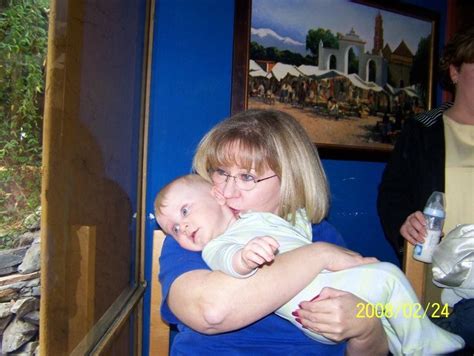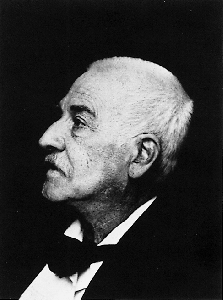Top 522 Greece Quotes & Sayings - Page 9
Explore popular Greece quotes.
Last updated on December 4, 2024.
Life for women in ancient Greece was hard - you had to fight for every inch of ground you got. Both Thetis and Briseis are strong, passionate women and in another time and place their lives would have been very different. Part of the tragedy of their characters is how much they have to offer - and how little of that they get to realize. Thetis spends the whole novel fighting the limitations placed on her, desperately trying to eke out the best she can from a bad situation. This makes her fierce and terrifying.
Listen, are we helpless? Are we doomed to do it again and again and again? Have we no choice but to play the Phoenix in an unending sequence of rise and fall? Assyria, Babylon, Egypt, Greece, Carthage, Rome, the Empires of Charlemagne and the Turk: Ground to dust and plowed with salt. Spain, France, Britain, America—burned into the oblivion of the centuries. And again and again and again. Are we doomed to it, Lord, chained to the pendulum of our own mad clockwork, helpless to halt its swing? This time, it will swing us clean to oblivion.
Like apples in a barrel infected by one rotten one, the corruption of Greece would infect Iran and all to the east. It would also carry infection to Africa through Asia Minor and Egypt, and to Europe through Italy and France, already threatened by the strongest domestic Communist parties in Western Europe. The Soviet Union was playing one of the greatest gambles in history at minimal cost. It did not need to will all the possibilities. Even one or two offered immense gains. We and we alone were in a position to break up the play.
My mother found a way out of a little one-bedroom apartment in Athens, Greece to bring Arianna to Cambridge to study economics and bring me to the Royal Academy in London with very few financial resources and no connections. She didn't know anybody in England, but she found a way. Her love for her daughters and seeing what they could be, motivated her and gave her the chutzpah, the courage, to break down barriers. When you have the motivation of love, you will find the way.
In our own time the whole of Greece has been subject to a low birth rate and a general decrease of the population, owing to which cities have become deserted and the land has ceased to yield fruit, although there have neither been continuous wars nor epidemics...For as men had fallen into such a state of pretentiousness, avarice, and indolence that they did not wish to marry, or if they married to rear the children born to them, or at most as a rule but one or two of them, so as to leave these in affluence and bring them up to waste their substance, the evil rapidly and insensibly grew.
Ancient traditions have long associated holy wells and springs as very special places of the Goddess or anima mundi: symbolic of the Great Mother and associated with birth, the feminine principle, the universal womb, the prima materia, the waters of fertility and refreshment and the fountain of life. The dreaming sites, as they are called, have also been associated with visions, healing, and other paranormal experiences. In ancient Greece, for example, there were more than three-hundred medical centers placed at water sources, where patients experienced healing.
The values of science and the values of democracy are concordant, in many cases indistinguishable. Science and democracy began - in their civilized incarnations - in the same time and place, Greece in the seventh and sixth centuries B.C. . . . Science thrives on, indeed requires, the free exchange of ideas; its values are antithetical to secrecy. Science holds to no special vantage points or privileged positions. Both science and democracy encourage unconventional opinions and vigorous debate. Both demand adequate reason, coherent argument, rigorous standards of evidence and honesty.
Books are special, books are the way we talk to generations that have not turned up yet. The fact that we can actually, essentially communicate with the people in ancient Egypt, people in Rome and Greece, people in ancient Britain, people in New York in the 1920s who can communicate to us and change the way we think, and change the things that we believe. I think that books are special. Books are sacred. And I think that when you are selling books, you have to remember that in all the profits and loss, in all of that, you are treading on sacred ground.
What is remarkable about the Greeks - even pre-philosophically - is that despite the salience of religious rituals in their lives, when it came to the question of what it is that makes an individual human life worth living they didn't look to the immortals but rather approached the question in mortal terms. Their approaching the question of human mattering in human terms is the singularity that creates the conditions for philosophy in ancient Greece, most especially as these conditions were realized in the city-state of Athens.
When we speak of the origin of western democracy it's precisely here, in this territory that the modern definition of democracy first emerged in city/states known now as Greece. This was coming from a society in which 30 thousand citizens had rights and 300 thousand were slaves and citizens without rights that lived in this territory. So that was the concept of western democracy; some citizens had the prerogative of exerting their civil and political rights while the others had none.
First I went to a Jewish school, when I was very little. But when I was 12, they put me in a school with a lot of traditions, and they were educated people and they were talking about Greece and the Parthenon and I don't know what. All the kids, all the girls they had already seen that and knew that from their family, and I would say, "What are you talking about, what's that?" It's not my world. My grandparents were very well-educated people, but in the Jewish tradition. They knew everything about the Bible.
To Helen Helen, thy beauty is to me Like those Nicean barks of yore That gently, o'er a perfumed sea, The weary, way-worn wanderer bore To his own native shore. On desperate seas long wont to roam, Thy hyacinth hair, thy classic face, Thy Naiad airs have brought me home To the glory that was Greece, And the grandeur that was Rome. Lo, in yon brilliant window-niche How statue-like I see thee stand, The agate lamp within thy hand, Ah! Psyche, from the regions which Are Holy Land!
Nothing lasts forever, whether it's Greece, Rome or the British Empire. It doesn't mean that America has to end. The country could be reshaped and reimagined in a way that is even more democratic and less imperial in nature. We're trying to radically reshape the nation in ways that are more just and fairer. That's what I mean when I say that empires eventually fall. I'm not calling for the end of America. I'm just calling for a reimagination of its democratic possibilities.
In 2012, the far-right Golden Dawn won 21 seats in Greece's parliamentary election, the right-wing Jobbik gained ground in my native Hungary, and the National Front's Marine Le Pen received strong backing in France's presidential election. Growing support for similar forces across Europe points to an inescapable conclusion: the continent's prolonged financial crisis is creating a crisis of values that is now threatening the European Union itself.
Goldman Sachs was fundamentally responsible for the crash of 2008, but by that time its former Chairman and Chief Executive Officer, Henry 'Hank' Paulson, had been installed as US Treasury Secretary to begin the bank bail out policy, with enormous benefit to Goldman Sachs, in the closing weeks of the Bush administration. Goldman Sachs was also instrumental in the collapse of the economy in Greece that started the 'euro panic' that later engulfed Ireland.
Nietzsche inveighs against every sort of historical optimism; but he energetically repudiates the ordinary pessimism, which is the result of degenerate or enfeebled instincts of decadence. He preaches with youthful enthusiasm the triumph of a tragic culture, introduced by an intrepid rising generation, in which the spirit of ancient Greece might be born again. He rejects the pessimism of Schopenhauer, for he already abhors all renunciation; but he seeks a pessimism of healthiness, one derived from strength, from exuberant power, and he believes he has found it in the Greeks.
I was making commercials. That's how I learned the craft. That was the marketing part of it: directing commercial for TV. It wasn't the most common thing to become a filmmaker in Greece. I started by saying I was interested in marketing and have a proper job in advertising and commercials. Basically, I studied film to learn how to do marketing, and commercials. As I studied film I learned I'd be interested in making films instead of commercials.
America did not need to be discovered because quite simply America had the American-Indians. There were whole groups of people that already lived there including very developed societies such as the Incas, the Aztecs, and the Mayans. But then came the European vision that saw the conquest as a source of advanced growth away from medieval Europe. The new revolutionary bourgeois trend formed a new perspective on what was democracy that they saw as an improvement to the democracy of ancient Greece.
If you look at US internal documents, they explain very clearly what the threat of Cuba was. So, back in the early 1960s the State Department described the threat of Cuba as Castro's successful defiance of US policy, going back to the Monroe Doctrine. The Monroe Doctrine established the US claim to dominate the Western hemisphere and Castro was successfully defying that. That's not tolerable. It is like somebody saying "let's have democracy in Greece," and we just can't tolerate that so we have to destroy the threat at its roots.
And now for the vapor-bath: on a framework of three sticks, meeting at the top, they stretch pieces of woolen cloth, taking care to get the joints as perfect as they can, and inside this little tent they put a dish with red-hot stones in it. Then they take some hemp seed, creep into the tent, and throw the seed on to the hot stones. At once it begins to smoke, giving off a vapor unsurpassed by any vapor-bath one could find in Greece. The Sythians enjoy it so much that they howl with pleasure. This is their substitute for an ordinary bath in water, which they never use.
While Barack Obama was making his latest pitch for a brand new, even more unsustainable entitlement at the health care 'summit,' thousands of Greeks took to the streets to riot. An enterprising cable network might have shown the two scenes on a continuous split-screen - because they're part of the same story. It's just that Greece is a little further along in the plot: They're at the point where the canoe is about to plunge over the falls. America is further upstream and can still pull for shore, but has decided, instead, that what it needs to do is catch up with the Greek canoe.
Even before the economic crisis in Greece there was no structure for making films - no proper industry, and the structure didn't help filmmakers at all. So filmmakers had to help each other, and make very, very low-budget films. Now with the crisis, things got a bit worse, but filmmakers are still going to be making films. It didn't change that much.
I think Syriza and Podemos are very, very different from Sinn Féin in many ways, and so I wouldn't put all three together. I would say that Syriza and Podemos are movements which have come out of mass struggles. In the case of Podemos, directly out of tariqaliextremehuge mass movements in Spain, which started with the occupation of the square. In Greece, as a response to what the EU was doing there, punishing it endlessly, for the sins of its ruling elite.
To paraphrase Hemingway, people go broke slowly and then all at once. We've been slowly going broke for years, but now it's happening all at once as the world's capital markets are demanding action from us, yet Obama assumes we'll just go borrow another cup of sugar from some increasingly impatient neighbor. We cannot knock on anyone's door anymore. And we don't have any time to wait for Washington to start behaving responsibly. We'll be Greece before these D.C. politicians' false promises are over. We must force government to live within its means, just as every business and household does.
English literature, from the days of the minstrels to the Lake Poets,--Chaucer and Spenser and Milton, and even Shakespeare, included,--breathes no quite fresh and, in this sense, wild strain. It is an essentially tame and civilized literature, reflecting Greece and Rome. Her wildness is a greenwood, her wild man a Robin Hood. There is plenty of genial love of Nature, but not so much of Nature herself. Her chronicles inform us when her wild animals, but not the wild man in her, became extinct.
The whole life of Demosthenes... leaves the impression of a melancholy state of things, and of the brazen insolence of wickedness. A particularly striking idea of how things really were in Greece can be obtained from one feature of life - the sons who turned out badly.... the sons of gifted but arrogant fathers turned out merely arrogant, the grandsons hopeless; it is respect alone that sustains families and gives them traditions.
The real story of the Fleece: there were these two children of Zeus, Cadmus and Europa, okay? They were about to get offered up as human sacrifices, when they prayed to Zeus to save them. So Zeus sent this magical flying ram with golden wool, which picked them up in Greece and carried them all the way to Colchis in Asia Minor. Well, actually it carried Cadmus. Europa fell off and died along the way, but that's not important." "It was probably important to her.
When a rapidly rising power rivals an established ruling power, trouble ensues. In 11 of 15 cases in which this has occurred in the past 500 years, the result was war. The great Greek historian Thucydides identified these structural stresses as the primary cause of the war between Athens and Sparta in ancient Greece. In his oft-quoted insight, "It was the rise of Athens and the fear that this inspired in Sparta that made war inevitable."
The Romans never allowed a trouble spot to remain simply to avoid going to war over it, because they knew that wars don't just go away, they are only postponed to someone else's advantage. Therefore, they made war with Philip and Antiochus in Greece, in order not to have to fight them in Italy... They never went by that saying which you constantly hear from the wiseacres of our day, that time heals all things. They trusted rather their own character and prudence- knowing perfectly well that time contains the seeds of all things, good as well as bad.
But it is fit that the Past should be dark; though the darkness is not so much a quality of the past as of tradition. It is not adistance of time, but a distance of relation, which makes thus dusky its memorials. What is near to the heart of this generation is fair and bright still. Greece lies outspread fair and sunshiny in floods of light, for there is the sun and daylight in her literature and art. Homer does not allow us to forget that the sun shone,--nor Phidias, nor the Parthenon.
Poverty is not an accident of, sort of, an economic spreadsheet. Poverty is a crime. There are criminals involved. And those criminals walk the streets as free men. What my music is about, and what - this from the riots in the streets of Greece and Spain to the people's uprisings in Egypt and Libya and Madison is about is holding those people accountable, those who are responsible for subverting the entire global economy and causing so much misery and then laughing about it with their, you know, clinking their champagne glasses on their yachts.
Great cycles of history began with vigorous cultures awakening to the needs of children, but collapsing with frayed family ties. Have we failed to learn lessons which Ancient China, Greece and Rome learned too late - about day care and death houses for old folks? Do we without protest accept accelerating preschool and nursing home cultures which warn ominously that the earlier you institutionalize your child, the earlier he will institutionalize you!
The United States is the most indebted country in the world. It has almost 17 billion dollars of debt with the rest of the world while living off the world's savings. They are living off the savings of the people of Greece, the savings of the people of Spain, France etc. All of those countries that save their reserves in the banks in dollars are simply financing the American economy, and that is why the average American citizen consumes two and a half times more than their income.
Our tragedy today is not just that millions of people who called themselves communist or socialist were physically liquidated in Vietnam, Indonesia, Iran, Iraq, Afghanistan, not just that China and Russia, after all that revolution, have become capitalist economies, not just that the working class has been ruined in the United States and its unions dismantled, not just that Greece has been brought to its knees, or that Cuba will soon be assimilated into the free market - it is also that the language of the Left, the discourse of the Left, has been marginalised and is sought to be eradicated.
Have any of you taken a look out at Greece in the last, say, hour or so? (Hermes) What? Are they reacting to the fact I cursed the Apollites? (Apollo) I don’t think that bothers them nearly as much as the fact the island of Atlantis is now gone and the Atlantean goddess Apollymi is cutting a swathe through our country, laying waste to everyone and everything she comes into contact with. And in case you’re curious, she’s headed straight for us. I could be really wrong here, but I’m guessing the woman’s extremely pissed. (Hermes)
She is Melusina, the water goddess, and she is found in hidden springs and waterfalls in any forest in Christendom, even in those as far away as Greece. (...) A man may love her if he keeps her secret and lets her alone when she wants to bathe, and she may love him in return until he breaks his word, as men always do, and she sweeps him into the depths with her fishy tail, and turns his faithless blood to water. The tragedy of Melusina, whatever language tells it, whatever tune it sings, is that a man will always promise more than he can do to a woman he cannot understand.
In looking at these pots at the Field Museum, Alix [MacKenzie] and I both came to a conclusion individually but also collectively that the pots that really interested us were the pots that people had used in their everyday life, and we began to think - I mean, whether it was ancient Greece or Africa or Europe or wherever, the pots that people had used in their homes were the ones that excited us.
No civilisation, not even that of ancient Greece, has ever undergone such a continuous and profound process of change as Western Europe has done during the last 900 years. It is impossible to explain this fact in purely economic terms by a materialistic interpretation of history. The principle of change has been a spiritual one and the progress of Western civilisation is intimately related to the dynamic ethos of Western Christianity, which has gradually made Western man conscious of his moral responsibility and his duty to change the world.
. . .in August in Mississippi there’s a few days somewhere about the middle of the month when suddenly there’s a foretaste of fall, it’s cool, there’s a lambence, a soft, a luminous quality to the light, as though it came not from just today but from back in the old classic times. It might have fauns and satyrs and the gods and---from Greece, from Olympus in it somewhere. It lasts just for a day or two, then it’s gone. . .the title reminded me of that time, of a luminosity older than our Christian civilization.
The key strengths of civilizations are also their central weaknesses. You can see that from the fact that the golden ages of civilizations are very often right before the collapse. The Renaissance in Italy was very much like the Classic Maya. The apogee was the collapse. The Golden Age of Greece was the same thing. We see this pattern repeated continuously, and it is one that should make us nervous. I just heard Bill Gates say that we are living in the greatest time in history. Now you can understand why Bill Gates would think that, but even if he is right, that is an ominous thing to say.





































